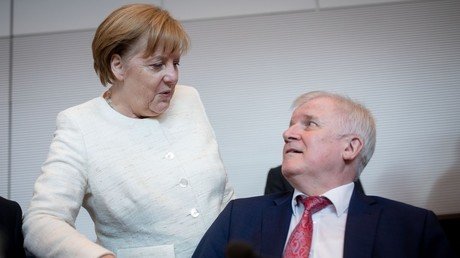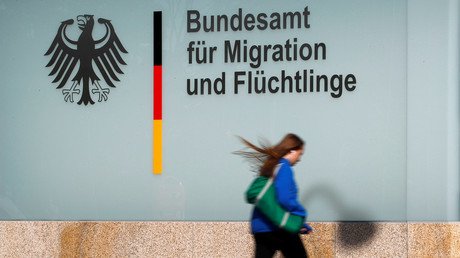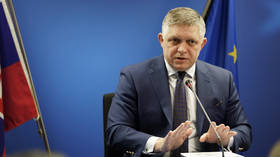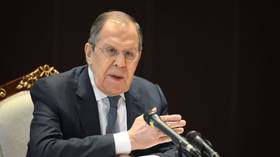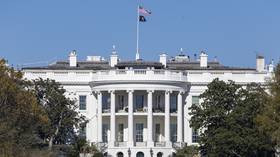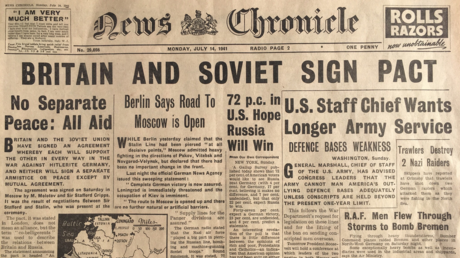Germany is in turmoil since 2015 and it has a name - Angela Merkel, ex-OSCE VP Willy Wimmer tells RT
Chancellor Angela Merkel's September 2015 decision to open borders to hundreds of thousands of refugees was a blow to Germany's internal order and to the European security, former OSCE Assembly vice-head Willy Wimmer told RT.
German Chancellor Angela Merkel is facing one of the toughest tests yet of her leadership as a rift over refugee policies threatens to derail her coalition government.
The dispute has put Merkel on a collision course with her Interior Minister, Horst Seehofer, a key coalition figure, who has been quoted as saying he can no longer work with her.
Seehofer previously unveiled a new strategy called the 'Migration Masterplan' which would allow German authorities to turn back refugees at its borders if they have already applied for asylum in other EU countries.
RT discussed the matter with Willy Wimmer, former vice-head of the Organization for Security and Cooperation in Europe (OSCE) Assembly and former State Secretary to Germany's Defense Minister, who says that the situation with regard to Angela Merkel "is not the question of weeks or months, it is a question of days or hours how long she might be Chancellor of the Federal Republic."
"There is no doubt that Horst Seehofer, as the Interior Minister, will pursue his ideas and his proposals immediately," he said.
"The situation in the country is like that: we don't have months or years to come to look for a solution of this imminent crisis. Therefore, he will do what he has to do by legal German, European and international standards," he added.
Merkel has been heavily criticized for implementing an "open-door" refugee policy which has seen over a million people pouring into Germany since the start of the migrant crisis in 2015. She has faced tough opposition from within her Cabinet. Wimmer believes that it was "the biggest mistake and a coup against the legal structure of the Federal Republic."
"What she did in September 2015 with opening up the German borders and creating an influx of migrants - which also created major problems for some of our European neighbors - was a situation which was unbelievable. It was a blow to everything we did in the past and hoped to do in the future," he pointed out.
"This is a blow to the internal order of the Federal Republic and to European security as well," he added.
A recent poll doesn't bode well for the chancellor either, as a growing number of Germans say they oppose receiving more migrants. Some 62 percent of those surveyed agree with the Interior Minister's plan to turn away undocumented migrants at the border, while nearly 90 percent say they want faster deportations of rejected asylum seekers.
Wimmer says that the reality in Germany is that Merkel "is not in accordance to the German people and to the legal order of this country".
"The prime-minister of Bavaria at that time, Horst Seehofer, told the German public late fall 2015 that we live in a country without a legal order. That says everything which has to be said in Germany when it comes to Angela Merkel's decision," he said.
According to Wimmer, there are several reasons why migrants keep coming to Germany.
"First is the ongoing NATO wars in neighboring countries. The second is the cutting of subsidies by the German and other European countries for the refugee efforts of the United Nations. Therefore, people are migrating to Germany. And there are hundreds of thousands from other parts of the world [who have] reasons to come into this country," he explained.
"We don't know who is backing this influx of migration. And therefore people here in Germany are upset because they don't get answers by the government, and they don't get answers by those who lead public opinion in this country," Wimmer said.
"And what we see in this migration office is just the situation we have in other parts of the German government, in other parts of Germany and its legal offices as well. The country is in turmoil since September 2015. And the turmoil has a name, Angela Merkel, not the BAMF (Federal Office for Migration and Refugees)," he concluded.
Like this story? Share it with a friend!

